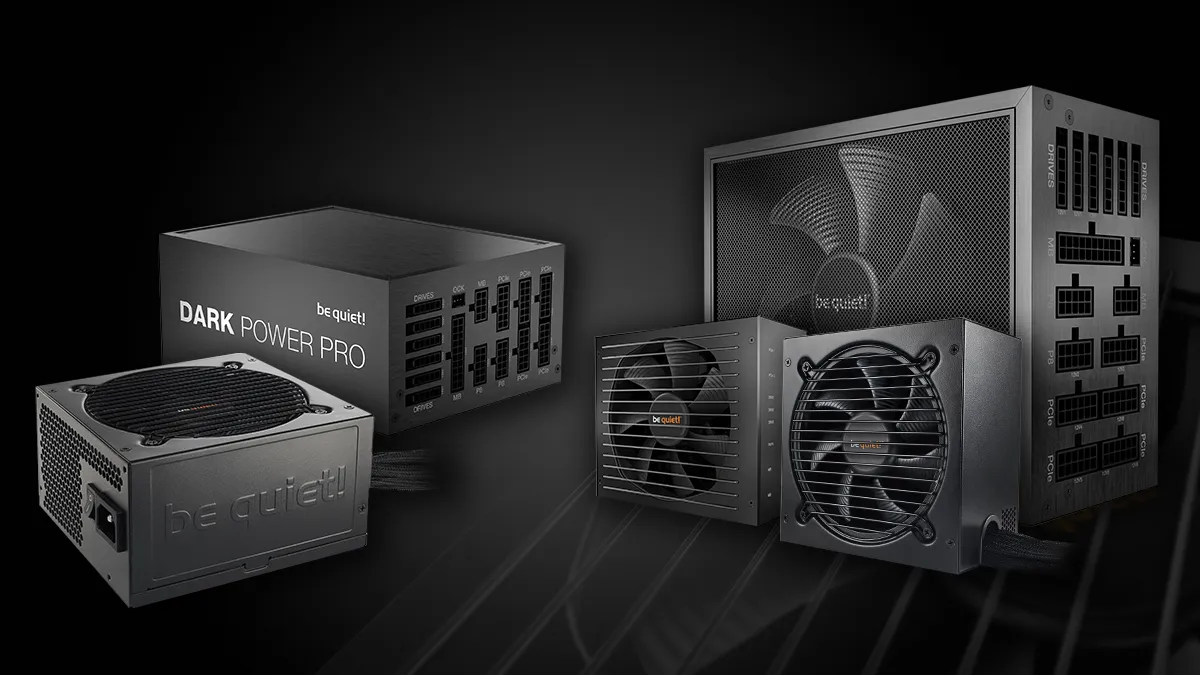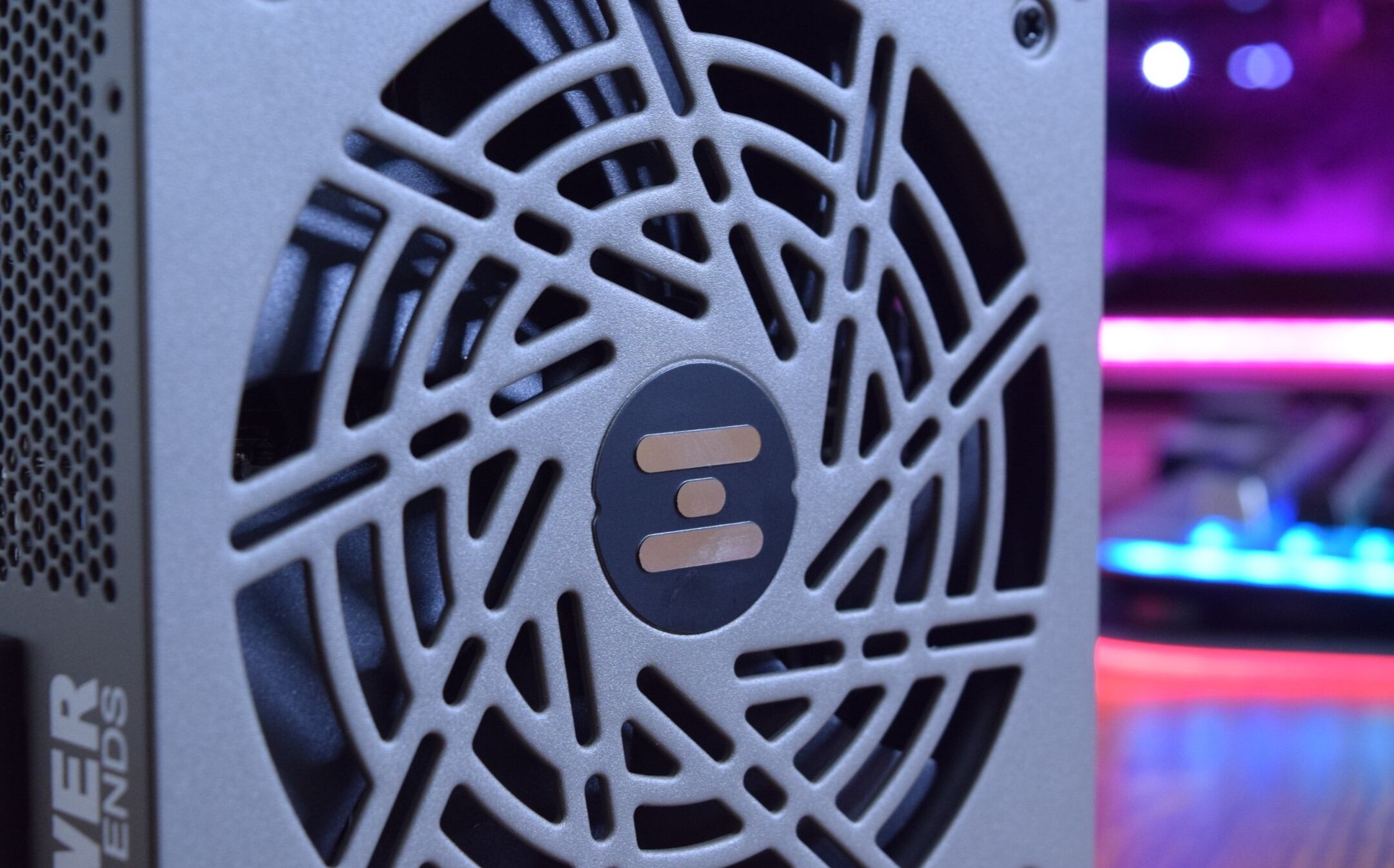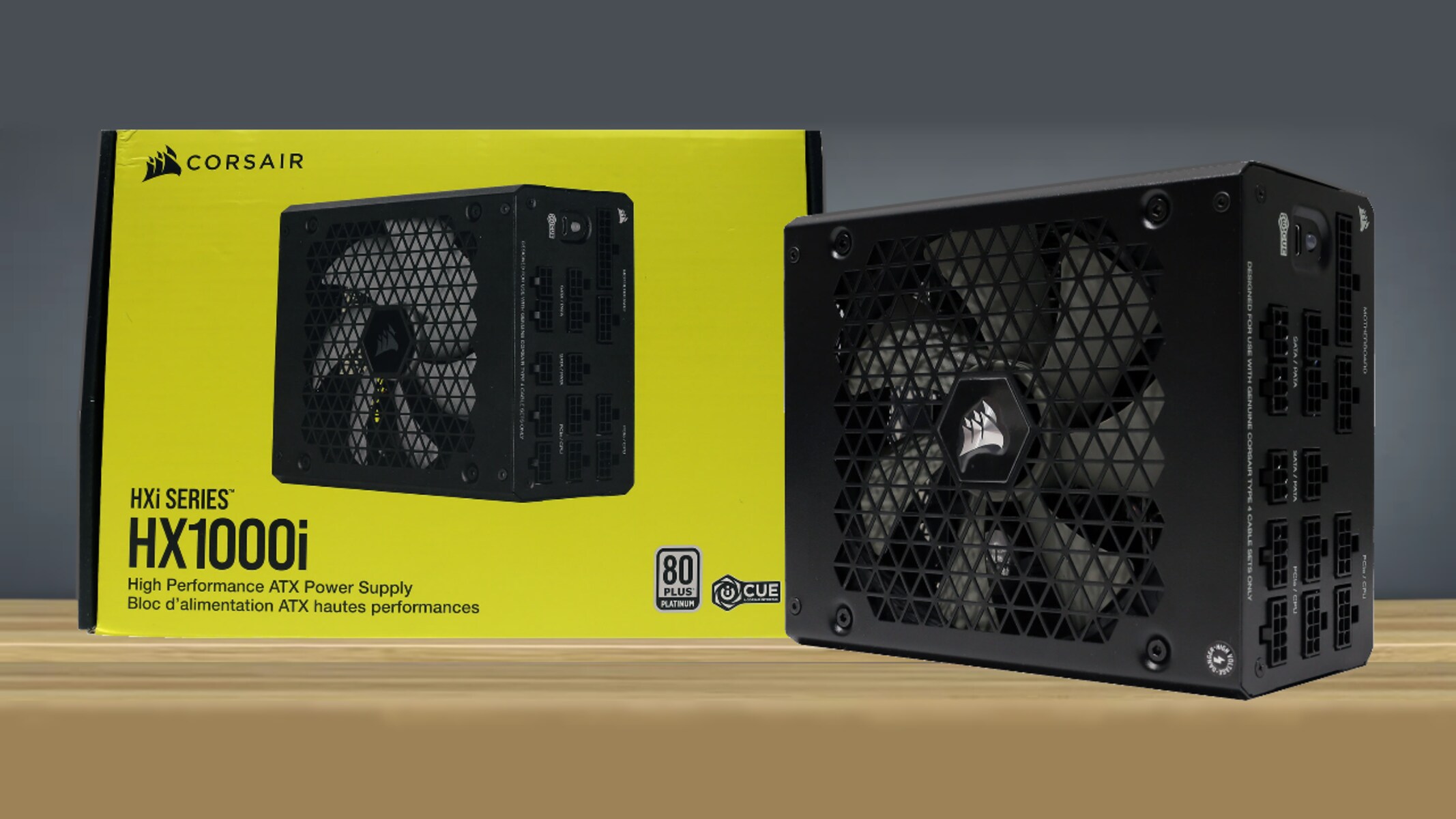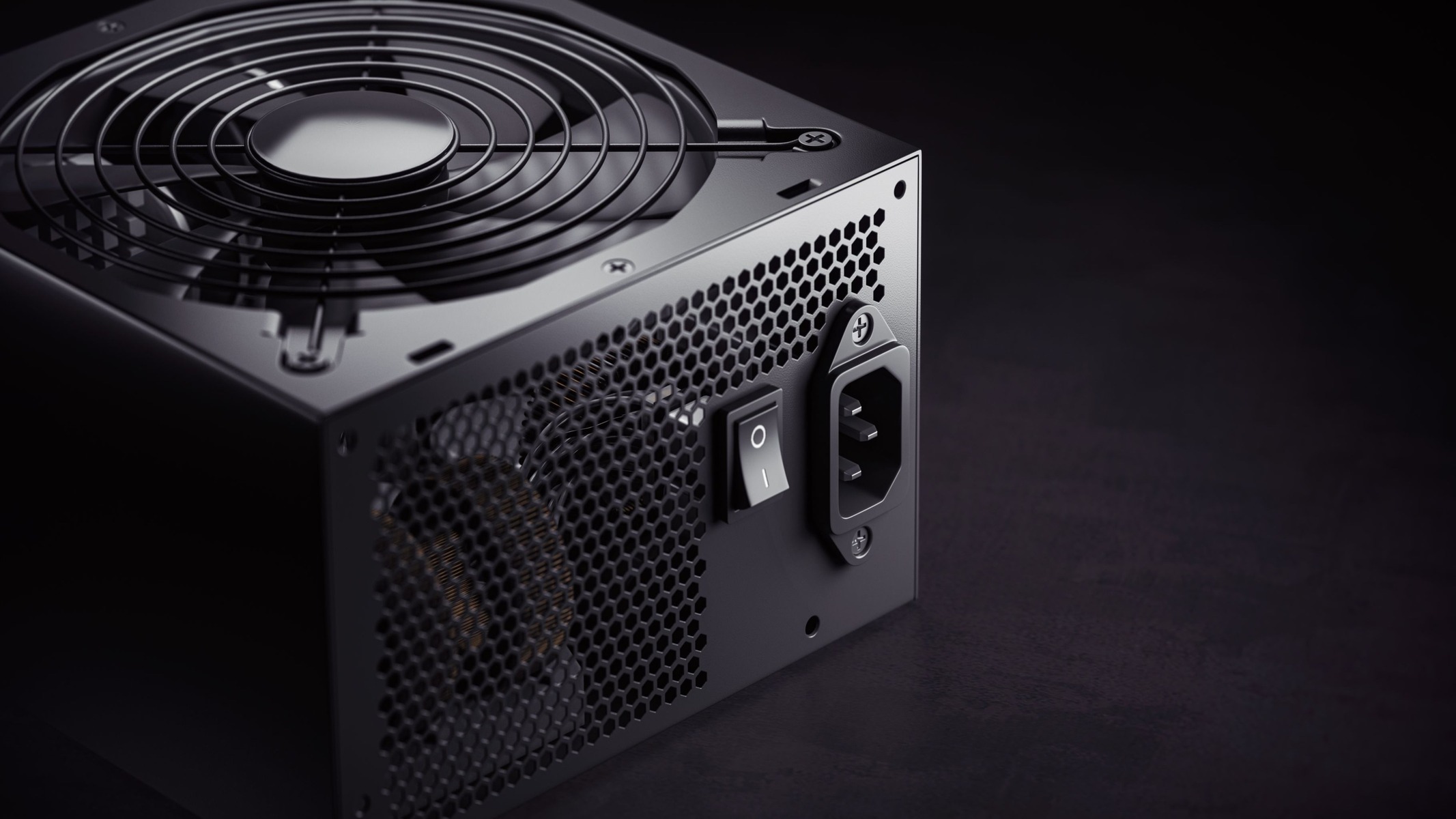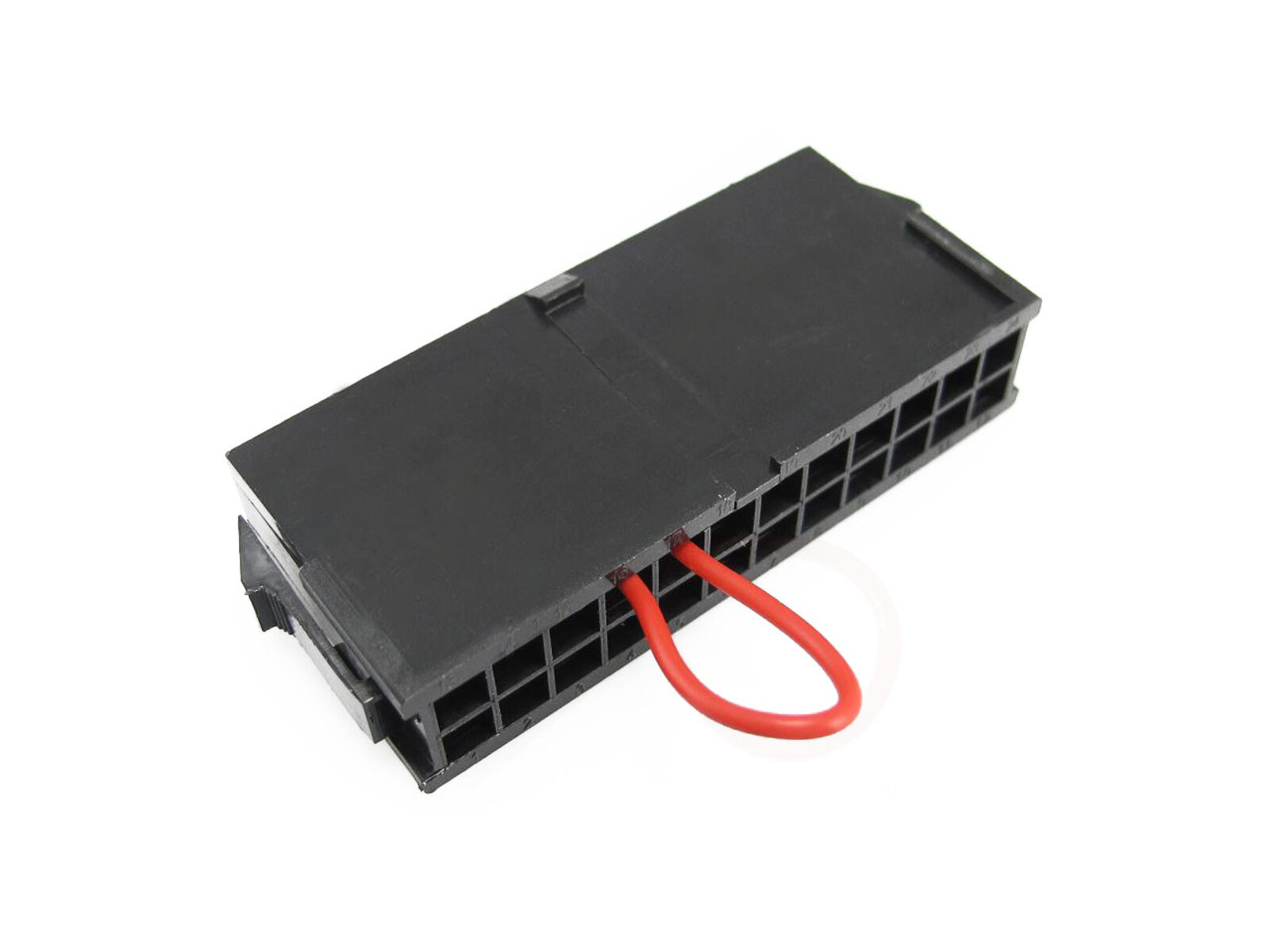Introduction
Gaming PCs are becoming increasingly popular as more and more individuals dive into the world of immersive gaming experiences. From intense graphics to demanding processing power, these gaming rigs require top-notch components to deliver optimal performance. One crucial component that often gets overlooked is the power supply unit (PSU). The PSU is responsible for supplying a stable and efficient power flow to all the components in your gaming PC.
Choosing the right PSU for your gaming PC is of utmost importance. A high-quality PSU ensures that your components receive a reliable power supply, preventing any power surges or fluctuations that could potentially damage your hardware. It also plays a vital role in the overall power efficiency and longevity of your gaming PC.
However, with so many options available in the market, selecting the best PSU for your gaming PC can be a daunting task. This article will guide you through the factors to consider when choosing a PSU, including wattage requirements, efficiency ratings, modular and non-modular options, form factors, overclocking considerations, and recommended brands.
Whether you are a casual gamer or a competitive esports enthusiast, having a PSU that meets the specific requirements of your gaming PC is essential for a smooth and enjoyable gaming experience. By understanding the key factors involved in selecting the best PSU, you can make an informed decision and ensure that your gaming PC is running at its optimal performance.
Factors to Consider When Choosing a PSU for a Gaming PC
When selecting a power supply unit (PSU) for your gaming PC, it’s important to consider several factors to ensure that you choose a PSU that meets your specific needs. Let’s take a closer look at these factors:
1. Wattage Requirements: The wattage requirement of your gaming PC will depend on the components you plan to use, such as the CPU, GPU, and the number of storage drives. It’s crucial to choose a PSU with sufficient wattage to handle the power demands of your system. To determine the wattage, add up the power requirements of the individual components or use online PSU calculators to get an estimate.
2. Efficiency Ratings: PSU efficiency is measured by the 80 Plus certification, which indicates how efficiently the PSU converts AC power from the wall outlet to DC power for your components. The higher the certification, such as 80 Plus Bronze, Silver, Gold, or Platinum, the more efficient and reliable the PSU. Investing in an efficient PSU not only results in lower energy consumption but also generates less heat and reduces system noise.
3. Modular vs. Non-Modular PSUs: Modular PSUs offer the advantage of detachable cables, allowing for better cable management and improved airflow within the PC case. This leads to better aesthetics and easier installation. Non-modular PSUs, on the other hand, come with fixed cables, which may result in cluttered cable management. Consider your preferences and the overall build of your gaming PC when choosing between modular and non-modular PSUs.
4. PSU Form Factors: PSUs come in various form factors, with ATX (Advanced Technology eXtended) being the most common and widely compatible. However, smaller form factors such as SFX (Small Form Factor) or TFX (Thin Form Factor) are suitable for compact gaming PCs or cases with specific size limitations. Ensure that the PSU you choose matches the form factor requirements of your PC case.
5. Overclocking and PSU Requirements: If you plan to overclock your CPU or GPU to extract more performance, it’s crucial to choose a PSU with sufficient power delivery and stability. Overclocking increases power consumption, so ensure that your PSU has enough headroom to handle the increased demands without straining the components or causing instability.
Considering these factors while selecting a PSU will help ensure a reliable and efficient power supply to your gaming PC. Once you have a clear understanding of the requirements, you can move on to researching and choosing from the wide range of PSUs available in the market.
Wattage Requirements for Gaming PCs
One of the most crucial factors to consider when choosing a power supply unit (PSU) for your gaming PC is the wattage requirement. The wattage requirement will depend on the components you plan to use in your system, including the CPU, GPU, RAM, storage drives, and any additional peripherals.
The power consumption of each component will be specified by the manufacturer, typically in watts (W). To determine the total wattage required, you need to add up the power requirements of all these components.
The CPU and GPU are the two main power-hungry components in a gaming PC. High-performance CPUs and graphics cards tend to have higher power requirements. For example, an Intel Core i7 processor can consume around 95W, while a high-end gaming GPU, like the NVIDIA GeForce RTX 3080, can consume up to 320W or more.
In addition to the CPU and GPU, the power consumption of other components, such as RAM, storage drives, and cooling fans, should also be taken into account. Although their power requirements are relatively lower compared to the CPU and GPU, they still contribute to the overall power consumption of the system.
It’s important to note that PSU manufacturers often provide a recommended wattage range for different types of systems. This range takes into consideration the typical power requirements of the components and provides some headroom for future upgrades and overclocking.
While it’s crucial to choose a PSU with sufficient wattage, it’s equally important not to overspend on an overly powerful PSU that exceeds your system’s requirements. An overpowered PSU can result in lower efficiency and increased energy consumption, as PSUs tend to operate most efficiently at around 50% to 80% of their maximum capacity.
It’s a good practice to use online PSU calculators that take into account the specific components you plan to use in your gaming PC. These calculators provide an estimate of the wattage required and help you choose a PSU with the appropriate wattage.
Remember, having a PSU with sufficient wattage ensures stable power delivery to your gaming PC, preventing any potential issues such as system instability, crashes, or even damage to your hardware. Therefore, giving due consideration to the wattage requirements of your gaming PC is essential when choosing a suitable PSU.
Efficiency Ratings: 80 Plus Certification and Beyond
When selecting a power supply unit (PSU) for your gaming PC, one of the key factors to consider is its efficiency. PSU efficiency is an indicator of how effectively it converts the alternating current (AC) power from your wall outlet into direct current (DC) power for your components.
The efficiency of a PSU is measured by the 80 Plus certification, a system introduced by Ecos Consulting to promote energy-efficient PSUs. The 80 Plus certification rates PSUs based on their efficiency levels, with higher ratings indicating higher efficiency.
The standard 80 Plus certification levels are:
- 80 Plus: PSU achieves at least 80% efficiency at 20%, 50%, and 100% of its rated load.
- 80 Plus Bronze: PSU achieves at least 82% efficiency at 20% load, 85% at 50% load, and 82% at 100% load.
- 80 Plus Silver: PSU achieves at least 85% efficiency at 20% load, 88% at 50% load, and 85% at 100% load.
- 80 Plus Gold: PSU achieves at least 87% efficiency at 20% load, 90% at 50% load, and 87% at 100% load.
- 80 Plus Platinum: PSU achieves at least 90% efficiency at 20% load, 92% at 50% load, and 89% at 100% load.
- 80 Plus Titanium: PSU achieves at least 90% efficiency at 10% load, 92% at 20% load, 94% at 50% load, and 90% at 100% load.
PSUs with higher efficiency ratings have several advantages. They waste less energy, generate less heat, and result in lower electricity bills. Additionally, they tend to have better build quality and more reliable components. An efficient PSU also runs quieter due to reduced heat generation, contributing to a more pleasant gaming experience.
While the 80 Plus certification is widely recognized, some PSU manufacturers go beyond these standards to offer even higher efficiency ratings. These advanced certifications, such as 80 Plus Titanium and 80 Plus Titanium Digital, are achieved by meeting stricter efficiency requirements.
Choosing a PSU with a higher efficiency rating may come at a higher cost, but the long-term benefits outweigh the initial investment. A more efficient PSU can save you money on your energy bills, provide cleaner power delivery to your components, and contribute to the overall longevity of your gaming PC.
Consider your budget and the level of efficiency you desire when making a decision. For gaming PCs where power demands can vary widely, an 80 Plus Gold or Platinum PSU is a popular choice as it balances efficiency and cost effectively.
Remember, selecting a PSU with a high efficiency rating will not only benefit your gaming PC but also reduce your environmental impact by conserving energy and minimizing wastage.
Modular vs. Non-Modular PSUs
When choosing a power supply unit (PSU) for your gaming PC, one decision you’ll need to make is whether to opt for a modular or non-modular PSU. This choice can have an impact on cable management, airflow, ease of installation, and overall aesthetics of your PC build.
Modular PSUs: Modular PSUs come with detachable cables, allowing you to connect only the cables you need for your specific setup. This flexibility eliminates the clutter of unused cables inside your PC case, improving cable management and airflow. It also makes installation and maintenance easier since you can easily disconnect and reconnect cables as needed. Additionally, with fewer cables obstructing airflow, modular PSUs can contribute to better cooling, which is crucial for keeping your system’s components running optimally.
Non-modular PSUs: Non-modular PSUs have fixed cables that cannot be detached from the unit. This means that you will have to manage and route all the included cables, regardless of whether or not you need them all for your particular build. This can lead to a more challenging and time-consuming installation process, as well as potentially cluttered cable management. Non-modular PSUs are often more affordable compared to their modular counterparts, making them an attractive option for those on a tight budget.
When deciding between modular and non-modular PSUs, consider the following:
- Cable Management: Good cable management not only improves the overall aesthetics of your build but also helps with airflow and cooling. If you prioritize a clean and organized interior, a modular PSU will provide you with the flexibility to keep things tidy by connecting only the necessary cables.
- Power Supply Location: Some PC cases have limited space for cable management, especially in small form factor builds. Modular PSUs can be particularly beneficial in these cases, as they allow for neater cable routing to make the most of the available space.
- Future Upgrades: If you anticipate making future upgrades to your PC or swapping out components, a modular PSU makes it easier to install and connect new cables without the hassle of managing unnecessary cables from a non-modular PSU.
- Budget: Non-modular PSUs generally come at a lower price point compared to their modular counterparts. If budget is a primary concern, and you don’t mind spending extra time on cable management, a non-modular PSU may be a suitable option.
Ultimately, the choice between a modular and non-modular PSU depends on your specific needs and priorities. If you value clean cable management, improved airflow, and ease of installation, a modular PSU is a worthwhile investment. However, if budget constraints are a primary concern, a non-modular PSU can still provide reliable power delivery for your gaming PC.
PSU Form Factors: ATX, SFX, and More
When selecting a power supply unit (PSU) for your gaming PC, it is important to consider the form factor compatibility with your PC case. The form factor refers to the physical size and shape of the PSU, which determines whether it will fit in your case and appropriately connect to the motherboard.
ATX Form Factor: The ATX (Advanced Technology eXtended) form factor is the most common and widely compatible PSU form factor. ATX PSUs are suitable for standard-sized PC cases and are compatible with ATX motherboards. These PSUs typically come in various wattages to meet the power requirements of different systems.
SFX Form Factor: SFX (Small Form Factor) PSUs are designed for compact PC cases that have size limitations. These PSUs are smaller in size compared to standard ATX PSUs and are ideal for Mini-ITX or Micro-ATX builds. SFX PSUs allow for better utilization of space inside small form factor cases, but they may have slightly lower power capacities due to their compact design.
TFX Form Factor: TFX (Thin Form Factor) PSUs are even smaller in size, primarily intended for slim and low-profile PC cases. These PSUs are commonly found in small office desktops or HTPC (Home Theater PC) builds. TFX PSUs have a thin and elongated shape to fit within slim cases, but they often have lower power capacities and limited expansion possibilities compared to ATX and SFX PSUs.
Other Form Factors: Besides ATX, SFX, and TFX, there are other form factors available, such as Flex ATX, which are designed for specialized cases or specific requirements. These form factors may be less common and have more limited availability, so it is crucial to ensure compatibility with your PC case before purchasing.
Choosing the right PSU form factor is essential for a seamless installation and proper functioning of your gaming PC. Before purchasing a PSU, check the specifications of your PC case and motherboard to determine the supported PSU form factor. You can often find this information in the user manual or on the manufacturer’s website.
Additionally, consider the space available inside your PC case and the expected power requirements of your system. If you have a compact case or specific size limitations, SFX or TFX PSUs may be a better fit. However, if you have a standard-sized case and require higher power capacities, opting for an ATX PSU is a more suitable choice.
Keep in mind that some PC cases may support multiple form factors, offering you more flexibility when it comes to PSU selection. However, ensure that the PSU you choose is of high quality, regardless of the form factor, to ensure reliable and stable power delivery to your gaming PC.
Overclocking and PSU Requirements
Overclocking is the process of increasing the clock speed or voltage of certain components, such as the CPU or GPU, to achieve higher performance levels. While overclocking can boost the performance of your gaming PC, it also increases the power requirements of the components. Therefore, it is essential to consider the impact of overclocking on the PSU requirements of your system.
When you overclock a component, it consumes more power to operate at the higher clock speeds or voltage levels. This increased power consumption directly affects the overall power requirements of your system, including the PSU. Failing to provide sufficient power to the overclocked components can result in system instability, crashes, or even damage to the hardware.
When choosing a PSU for an overclocked system, there are a few key factors to consider:
- Power Delivery: Overclocking puts additional stress on the components, requiring a PSU that can provide stable and reliable power delivery. Look for PSUs with robust power delivery capabilities, including sufficient amperage on the +12V rail(s), to handle the increased power demands.
- Headroom: It’s crucial to have some headroom in terms of wattage when overclocking. The increased power requirements due to overclocking should be factored into the overall wattage requirements of your PSU. Make sure that the PSU you choose has enough wattage to handle the overclocked components, along with any other system components.
- Efficiency: Overclocking increases power consumption, so having an efficient PSU becomes even more important. Opting for a high-efficiency PSU, such as an 80 Plus Gold or Platinum rated PSU, ensures that the power draw from the wall outlet is minimized, leading to reduced energy wastage and lower operating temperatures.
It’s important to note that not all PSUs are specifically designed for overclocking. Some PSUs may have limitations in terms of power delivery or stability when it comes to extreme overclocking scenarios. If you are planning to push your components to their maximum potential, it is recommended to choose a PSU that is known for its reliability and ability to handle high-performance systems.
Furthermore, ensure that your cooling system is adequate when overclocking. Increased power consumption results in more heat being generated, necessitating effective cooling solutions to maintain stable operating temperatures. Insufficient cooling can put additional strain on both the components and the PSU, leading to increased risks of instability or failure.
In summary, when overclocking your gaming PC, select a PSU that can provide ample power delivery, has sufficient wattage headroom, and offers high efficiency. Additionally, ensure that your cooling system is up to the task to maintain stable operating temperatures. By choosing the right PSU for your overclocked system, you can unleash the full potential of your components while maintaining stability and longevity.
Power Supply Unit Brands to Consider
When it comes to selecting a power supply unit (PSU) for your gaming PC, choosing a reputable and reliable brand is essential. The PSU is a critical component that ensures stable and efficient power delivery to your system. Here are some PSU brands that are well-regarded in the market:
1. Corsair: Corsair is a well-known and trusted brand in the PC gaming community. They offer a wide range of PSUs with varying wattages and efficiency ratings. Corsair PSUs are known for their reliability, performance, and excellent build quality, making them a popular choice for gaming enthusiasts.
2. EVGA: EVGA is another reputable brand that specializes in power supplies, among other PC components. They offer a variety of PSUs tailored to meet different gaming needs. EVGA PSUs are generally well-built, efficient, and offer excellent customer support.
3. Seasonic: Seasonic is highly regarded for manufacturing high-quality PSUs known for their reliability, efficiency, and performance. They often collaborate with other brands, including Corsair and EVGA, to provide excellent power supply options to consumers.
4. Thermaltake: Thermaltake is a well-established brand that offers a wide selection of PSUs suitable for various budgets and requirements. They are known for their reliable performance, modular designs, and durability.
5. Cooler Master: Cooler Master is a trusted name in the PC hardware industry, and they offer a range of reliable and efficient PSUs. They provide both modular and non-modular options, catering to different user preferences.
6. Be Quiet! Be Quiet! specializes in producing power supplies known for their exceptional build quality, quiet operation, and efficient performance. They focus on delivering a reliable and silent power supply solution for gamers and PC enthusiasts.
7. SeaSonic: Seasonic (also referred to as SeaSonic) is a renowned manufacturer that produces PSUs for various brands, in addition to offering their own line of high-quality PSUs. They are known for providing reliable power delivery, excellent efficiency, and advanced features.
8. XFX: XFX is recognized for their PSUs that deliver reliable performance and compatibility with gaming systems. They offer a range of PSUs with varying wattages and efficiency ratings to cater to different gaming needs.
While the brands mentioned above are known for their quality, it is important to research and read reviews on specific models within their product lines. This will help you determine which PSU from a particular brand best suits your gaming PC requirements.
Remember to choose a PSU that meets your system’s power demands, has a suitable efficiency rating, and comes with a warranty for added protection. Investing in a reputable brand ensures that you receive a high-quality power supply that will deliver reliable and efficient power to your gaming PC.
Recommended PSUs for Gaming PCs
When it comes to building a gaming PC, selecting a reliable and high-quality power supply unit (PSU) is crucial. A good PSU ensures stable and efficient power delivery to your components, safeguarding your gaming PC from potential power-related issues. Here are some recommended PSUs for gaming PCs:
1. Corsair RM750x: The Corsair RM750x is a popular choice for gaming PC builds. This PSU offers 750W of power, 80 Plus Gold efficiency, and fully modular cables for easy cable management. It boasts a quiet operation, reliable performance, and is backed by a 10-year warranty for peace of mind.
2. EVGA SuperNOVA 850 G3: The EVGA SuperNOVA 850 G3 is a highly regarded PSU known for its excellent performance and reliability. It provides 850W of power, 80 Plus Gold efficiency, and fully modular cables. It also features a compact design, a 10-year warranty, and a silent operation, making it an excellent choice for gaming PCs.
3. Seasonic Focus GX-650: The Seasonic Focus GX-650 is a reliable PSU option for gaming PCs. With 650W of power and 80 Plus Gold certification, it provides efficient and stable power delivery. The fully modular design and compact size make cable management easier. Seasonic is known for its top-notch build quality and customer satisfaction.
4. Thermaltake Toughpower GF1 Series 750W: The Thermaltake Toughpower GF1 Series 750W PSU is a solid choice for gaming PC enthusiasts. It offers 80 Plus Gold efficiency, a semi-modular design for improved cable management, and stable power delivery. The PSU is built with high-quality components, ensuring reliability and longevity.
5. Cooler Master MasterWatt 650 Watt: The Cooler Master MasterWatt 650 Watt PSU is an affordable option without compromising on quality. With 80 Plus Bronze efficiency and semi-modular cables, it provides stable and efficient power delivery. Cooler Master is a trusted brand in the PC gaming community known for its reliable products.
6. Be Quiet! Straight Power 11 650W: The Be Quiet! Straight Power 11 650W PSU is known for its silent operation, efficient performance, and excellent build quality. It offers 80 Plus Gold efficiency, a fully modular design, and stable power delivery. Be Quiet! is a well-regarded brand among PC enthusiasts for their emphasis on silent computing solutions.
7. SeaSonic FOCUS Plus 750 Gold: The SeaSonic FOCUS Plus 750 Gold PSU delivers reliable and efficient power for gaming PCs. It features 750W of power, 80 Plus Gold certification, fully modular cables, and a compact design. SeaSonic’s reputation for high-quality PSUs ensures the long-term durability of your gaming PC.
These are just a few examples of recommended PSUs for gaming PCs. It’s important to note that the choice of PSU may also depend on your specific system requirements, such as the power demands of your components and any future upgrades you plan on making.
Before making a purchase, thoroughly research the specifications, customer reviews, and warranty details of the PSU to ensure it meets your needs and expectations. Investing in a high-quality PSU will provide reliable and efficient power to your gaming PC, contributing greatly to the overall performance and longevity of your system.
Conclusion
Choosing the right power supply unit (PSU) is a critical aspect of building a gaming PC. A reliable and efficient PSU ensures stable power delivery to your components, safeguarding your system from potential issues and allowing it to perform at its best. To recap, here are the key factors to consider when selecting a PSU for your gaming PC:
Wattage Requirements: Determine the power requirements of your system by calculating the wattage needed for your components, including the CPU, GPU, RAM, and storage drives.
Efficiency Ratings: Consider the PSU’s efficiency rating, such as 80 Plus Bronze, Gold, or Platinum, to ensure optimum energy utilization and lower operating temperatures.
Modular vs. Non-Modular: Determine if you prefer a modular PSU for better cable management and improved airflow, or a non-modular PSU for more budget-friendly options.
PSU Form Factors: Select a PSU that matches the form factor compatibility with your PC case to ensure proper fit and connectivity.
Overclocking Considerations: If you plan to overclock your components, ensure that the PSU has sufficient power delivery and capacity to handle the increased power demands.
Recommended Brands: Consider reputable PSU brands such as Corsair, EVGA, Seasonic, Thermaltake, Cooler Master, Be Quiet!, and SeaSonic, known for their reliability, efficiency, and quality products.
By taking these factors into account, you can make an informed decision when selecting a PSU for your gaming PC. Remember to research specific PSU models, read customer reviews, and choose a PSU that meets your system’s requirements and budget.
Investing in a high-quality PSU ensures the longevity and performance of your gaming PC. It provides stable power delivery, protects your components from potential damage, and contributes to a smoother and more enjoyable gaming experience.
So, carefully consider your power requirements, efficiency needs, and the specific demands of your gaming setup when choosing a PSU. With the right PSU in place, you can power your gaming adventures with confidence and peace of mind.







